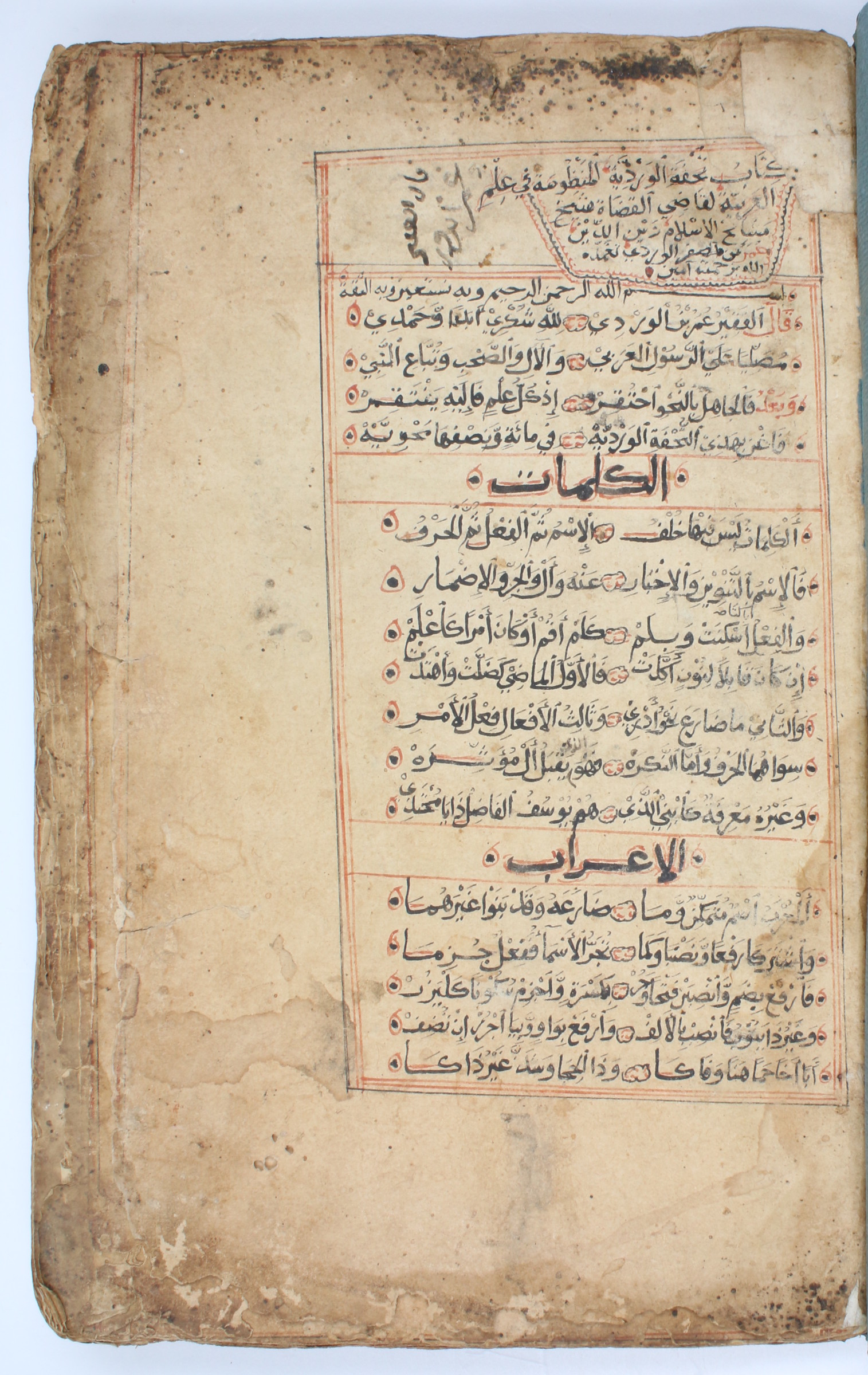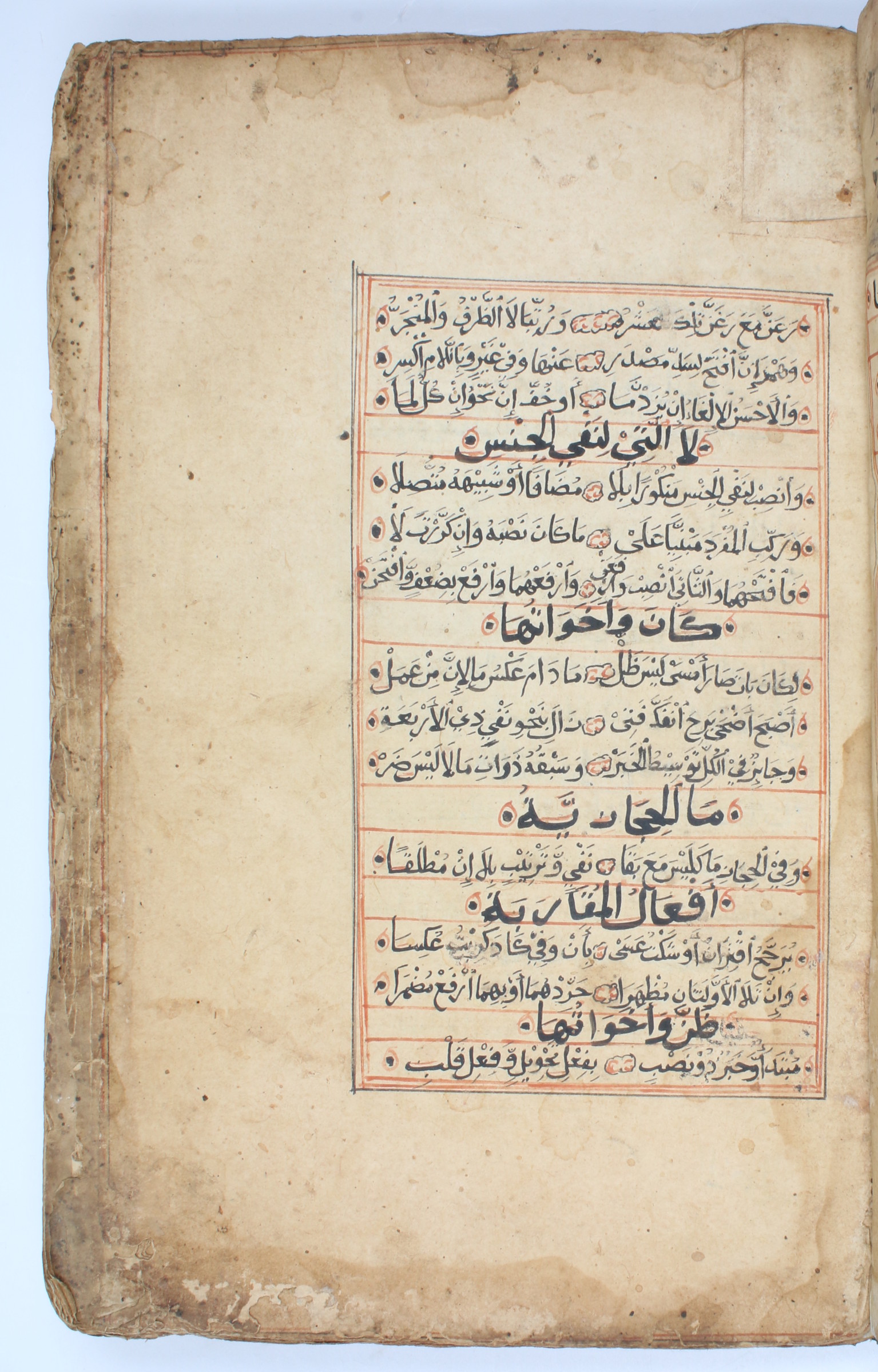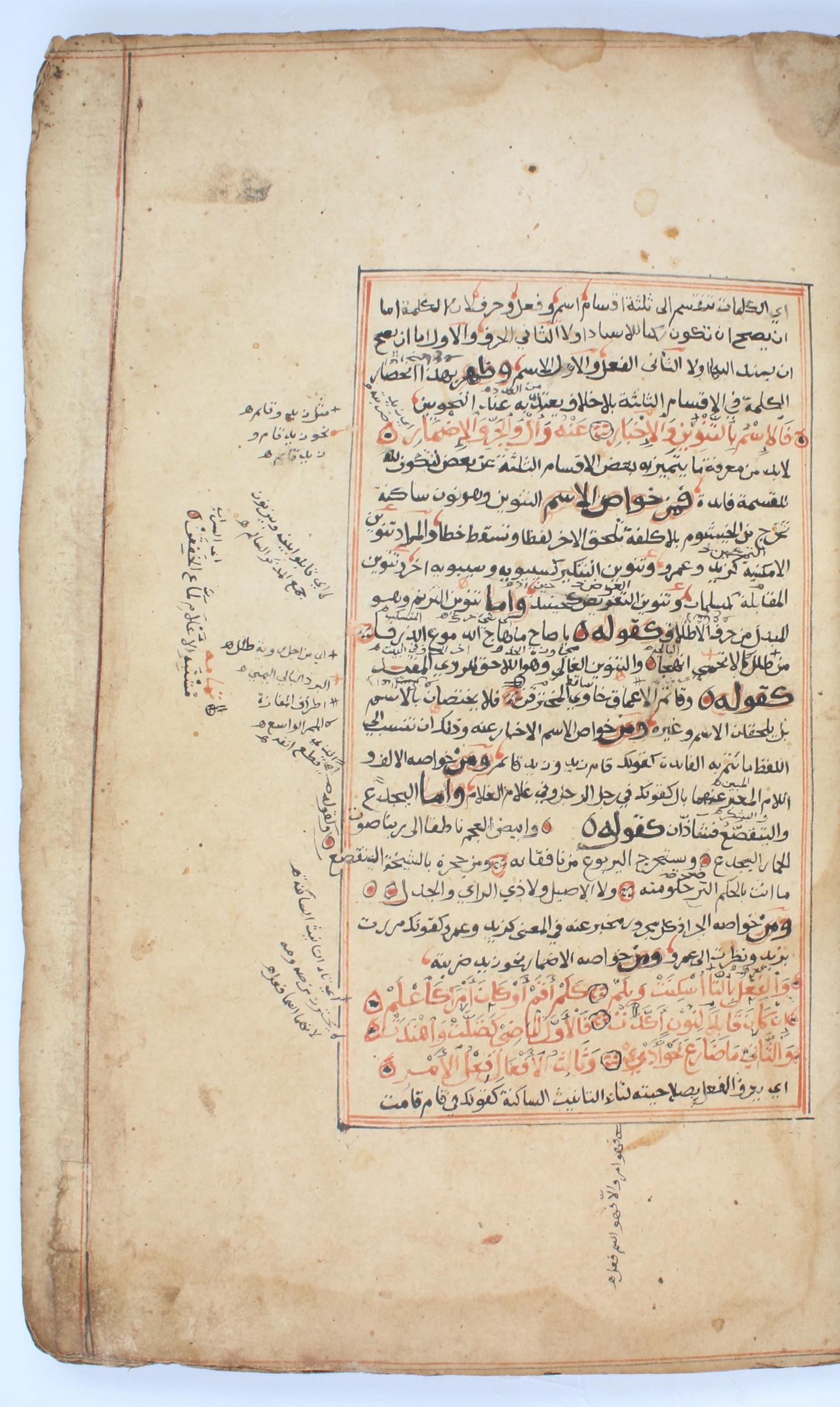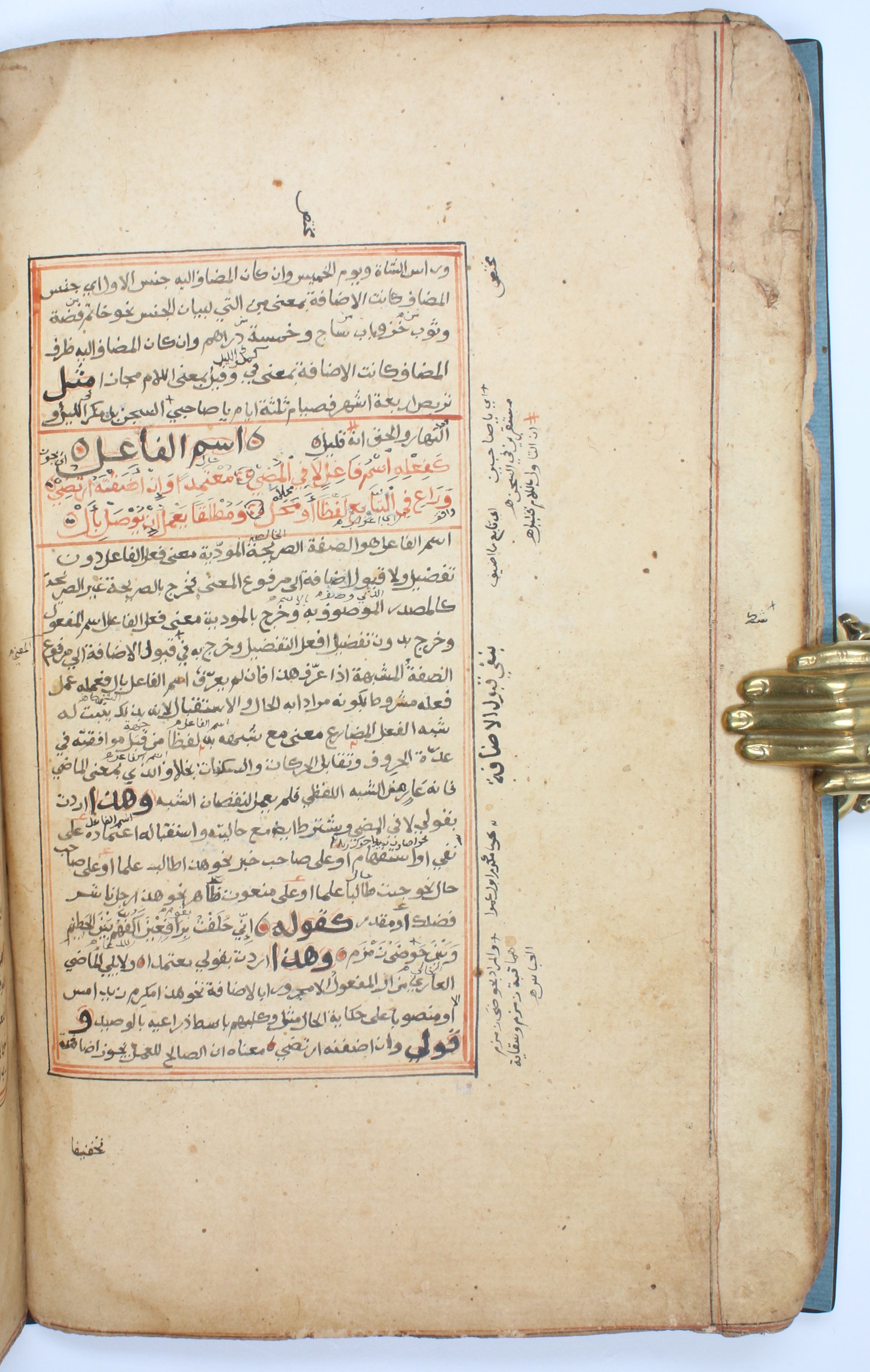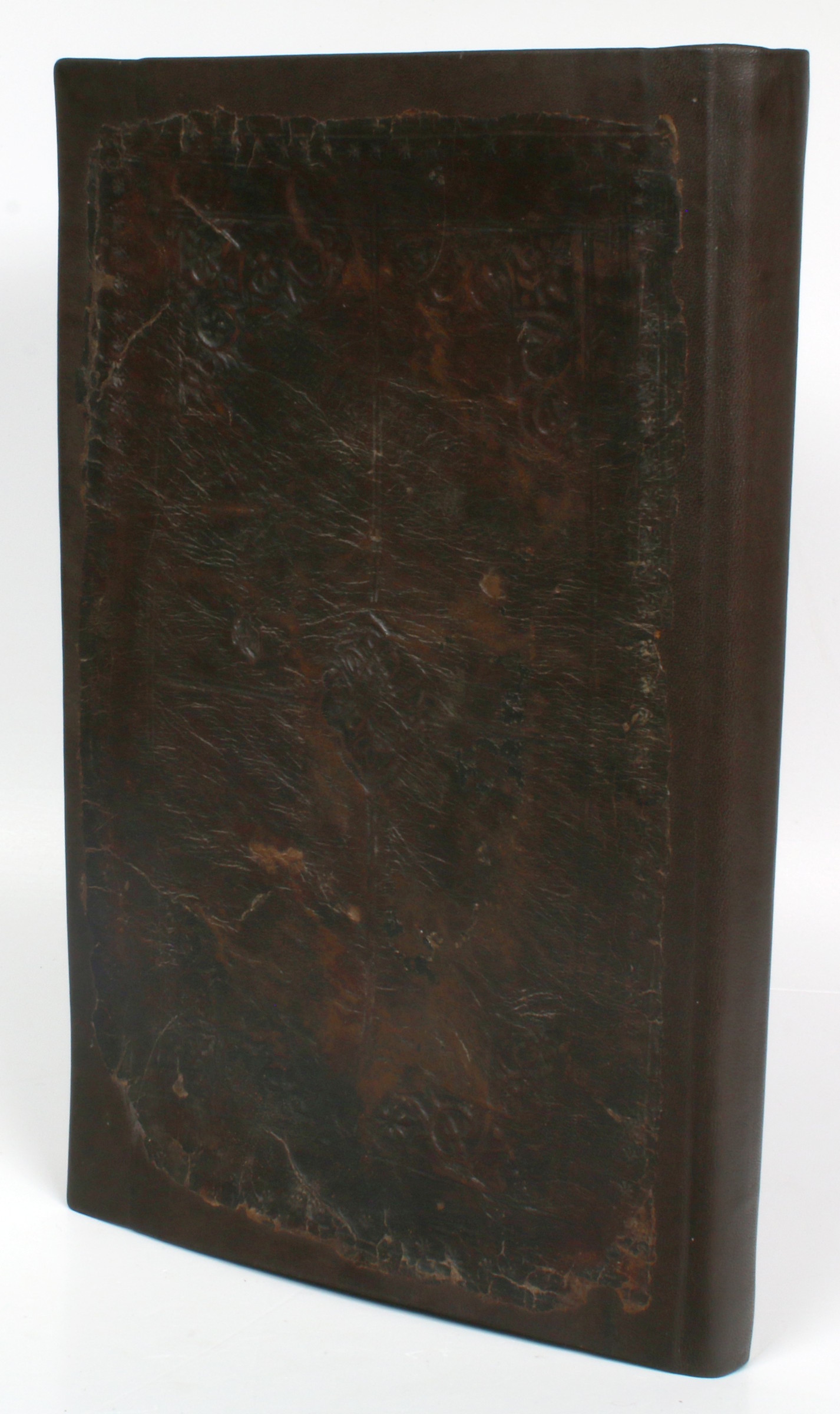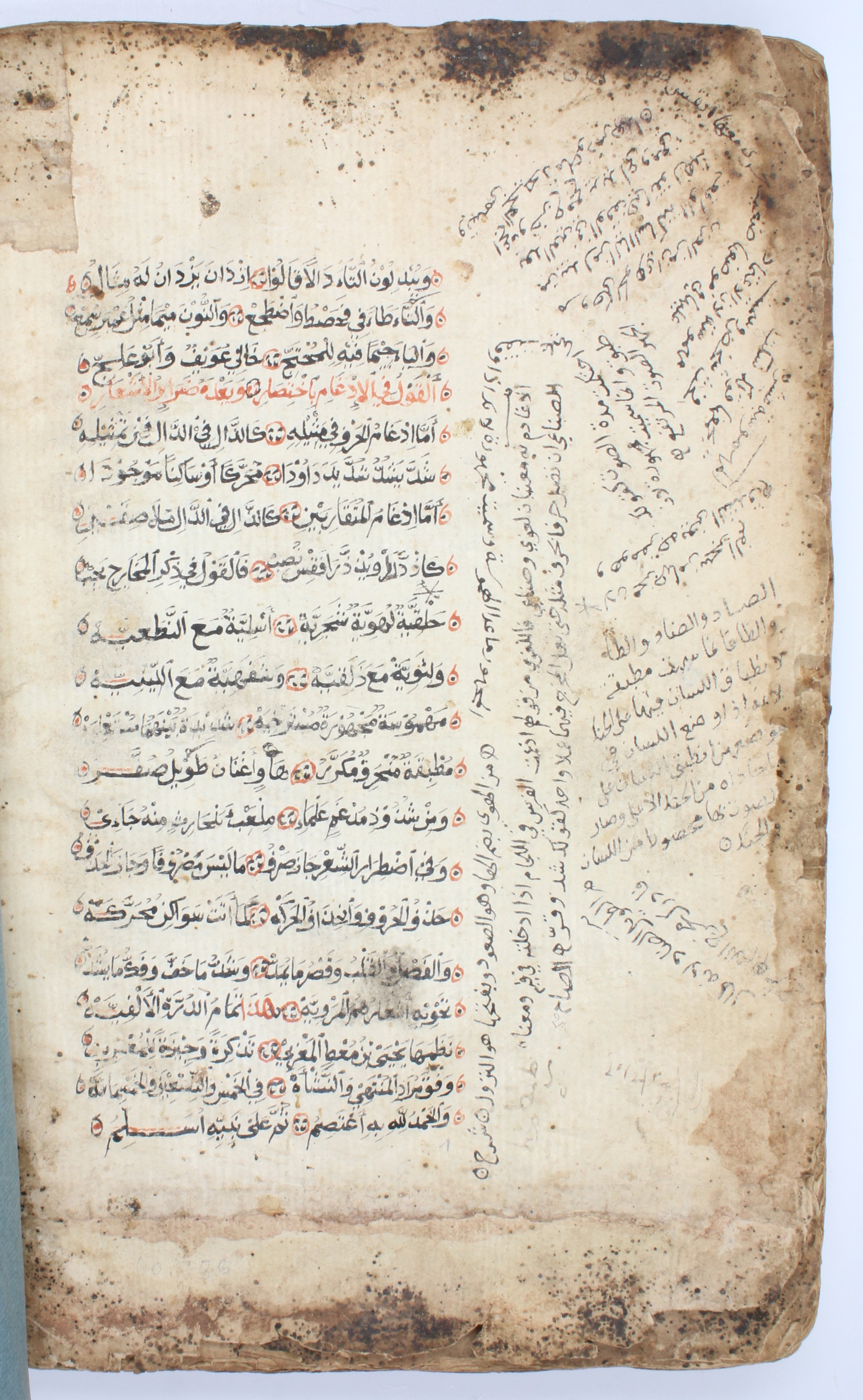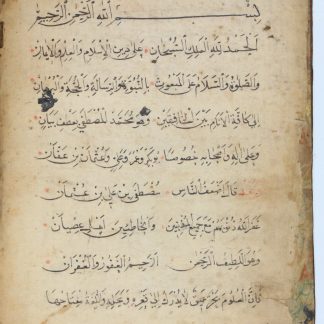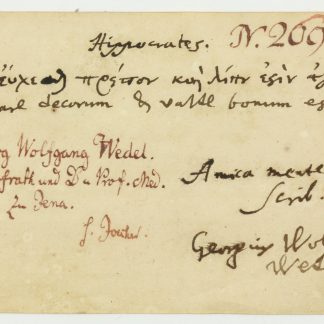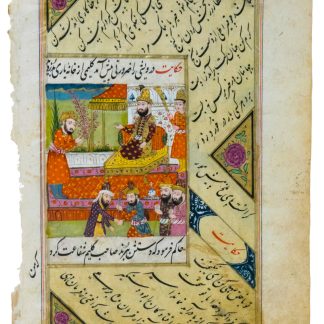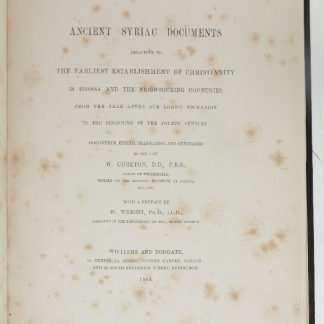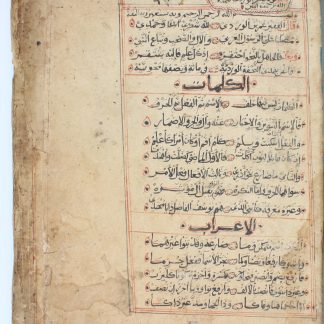Three treatises on the Arabic language
Kitab ad-Durra al-alfiya fi 'ilm al-'arabiya. [With:] Al-Tuhfah al-Wardiyah. [And:] Sharh al-tuhfah al-Wardiyah.
Large 8vo (170 x 255 mm). 70 ff. Arabic manuscript on paper. Black naskh script in 25 lines, ruled in red, with titles and important words and phrases picked out in red. With marginal annotations in a contemporary hand. Contemporary full leather ruled and stamped in blind.
€ 4,800.00
Three treatises bound in one Yemeni manuscript, all on various aspects of Arabic grammar and language, and including a copy of "Al-Durra al-alfiyah fi ‘ilm al-‘arabiyah", the most famous work by Ibn Mu‘ti al-Zawawi (1169-1231), which was for a time the most influential of Arabic grammars in the medieval period. The work, couched as an Alfiyya (a poem in one thousand verses), describes Arabic language and grammar in the form of simple poetry and was the focus of numerous commentaries. Its author, Ibn Mu'ti al-Zawawi, was a jurist, grammarian, and poet from the Maghreb.
The two texts bound before the Alfiyya are both by Abu Hafs Zayn al-Din 'Umar ibn al-Muzaffar Ibn al-Wardi (1291-1348), known as Ibn al-Wardi, and comprise a book of poetry on Arabic grammar called "al-Tuhfah al-Wardiyah", followed by a commentary on this first text. Ibn al-Wardi is best known as an historian, geographer, and natural philosopher; that he also wrote extensively on the Arabic language illustrates his skill as a polymath. His most famous work was a summary of the known world of the Arabs in his time.
Binding professionally rebacked. Some toning and paper repairs to text, a few repairs evidently quite early as marginal notes in an early hand have been added on top of them. Provenance: 20th century Parisian private collection, kept in the family for several generations and dispersed in 2022.

